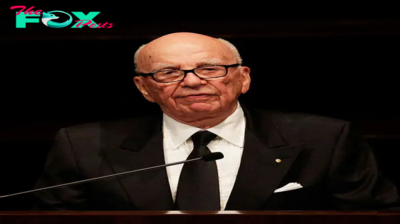Lifestyle
Exploring the Wealth, Net Worth, and Career of Sir Paul McCartney in 22 Defining Moments
Sir Paul McCartney is widely regarded as one of the greatest musicians of our time, having garnered a dazzling net worth that places him solidly among the ranks of billionaires in his iconic 66-year career. Having performed with The Beatles and as a solo artist, he has produced 32 Billboard Hot 100 hits, he has received two Rock and Roll Hall of Fame inductions, numerous awards and accolades, an appointment as Member of the Order of the British Empire, and a knighthood for services to music. And while he has achieved more than most will in a single lifetime, the 81-year-old shows no signs of stopping.
While many credit the success of Sir Paul McCartney to his work on iconic British rock band the Beatles, his solo career is equally impressive, earning him an illustrious net worth. In honour of his recent installment as the UK’s first billionaire musician, we look at the defining moments of Paul McCartney’s life and career, from humble beginnings to rock legend.
22 moments that have defined Paul McCartney’s life and career
1954: Paul McCartney meets George Harrison
Born in Liverpool on June 18 1942 to parents of Irish descent, Paul McCartney’s early life was coloured by the societal constraints of the working class. His parents, who had been described by biographer Peter Ames Carlin as belonging to the ‘lowest rungs of the working class’ were midwife Mary Patricia McCartney and cotton salesman James ‘Jim’ McCartney.

McCartney attended the Stockton Wood Road Primary School from 1947 to 1949, following which he transferred to Joseph Williams Junior School in Belle Vale due to overcrowding. The stars aligned in 1953, when McCartney was one in three pupils out of 90 to pass the 11-Plus exam, gaining entry into the Liverpool Institute grammar school. A year later, he would meet his future bandmate George Harrison on the bus, and the duo became fast friends, setting the stage for the collaboration of their lives.
1956: When he chose to play guitar over the trumpet
A man of many musical talents, Jim McCartney played the trumPet and was the leading pianist of the Jim Mac Jazz Band in the 1920s. While he encouraged McCartney to take piano lessons, the young John preferred to take a self-taught approach, opting to play by ear. On his 14th birthday, McCartney was presented with a nickel-plated trumPet; however, he soon traded it in for a GBP 14 Framus Zenith acoustic guitar, wanting to sing while he played. It was on this guitar that McCartney composed his first song, titled I Lost My Little Girl; he also composed the founding melodies for When I’m Sixty-Four, which would eventually be played on the piano.
1957: When Paul met John
In 1956, when Paul was a mere 14 years of age, his mother passed away from complications in breast cancer surgery that had resulted in an embolism. This unthinkable loss became the imPetus for his early depth of connection with the legendary John Lennon, whom he met in 1957 at the St. Peter’s Church Hall fair in Woolton. Lennon, whose own mother later passed away in 1958, had performed at this event with his then-band, The Quarrymen. They soon invited McCartney to become their rhythm guitarist, with Harrison joining them as lead guitarist in 1958. Lennon’s friend from art school Stuart Sutfcliffe eventually took up the mantle of bass player in 1960, along with drummer Pete Best.
1962: The Beatles as we know it is formed
When Sutcliffe left the band in 1961, McCartney assumed the role of the band’s bassist. Sutcliffe’s departure was followed by Best’s in 1962, which left the role of drummer open for Ringo Starr. And thus, the Beatles as we know it was formed. That same year, the band released their first hit Love Me Do, kickstarting their phenomenal ascent into the halls of the musical greats.
1965: The Beatles becomes an unstoppable force
Having tasted their initial bout of success in 1962, the Beatles soon became an unstoppable musical force within the United Kingdom; by 1964, they had released four studio albums within the UK — Please Please Me, With The Beatles, A Hard Day’s Night, and Beatles For Sale.
Because publishing royalties were calculated differently in the United States than it was back home, the band’s releases for the former region adopted a different format, with no more than 11 or 12 songs per album.

To that end, the Beatles released six studio albums in the United States in 1964: Introducing… The Beatles, Meet The Beatles, The Beatles’ Second Album, A Hard Day’s Night, Something New, and Beatles ‘65. While their albums would eventually be consolidated into a standardised list, these early releases proved their mettle in the realm of musical greats, debuting to critical acclaim among musicians and lovers of music alike.
In the UK, all four albums peaked at No. 1 on the charts; the rearranged albums found similar success in the United States, with all albums peaking at No. 1 except Introducing… The Beatles and Something New, which peaked at a respectable No. 2. Beatlemania swept the world, skyrocketing Paul, John, Ringo, and George into the near-instant celebrity, relegating them to cult status.
Despite having already achieved success in the United Kingdom, the Beatles took home Grammy Awards in 1965 for Best New Artist, as well as Best Performance by a Vocal Group for A Hard Day’s Night.
The Beatles went on to release Yesterday in August of 1965. Produced to McCartney’s exquisite composition work, Yesterday has since become one of the most covered songs in modern musical history. Yet, in the face of unbridled success, not all was well behind the scenes.
Paired with his increasing influence within the band, McCartney’s burgeoning role as the Beatles’ songwriter, instrumentalist, arranger, producer, and de facto musical director led to rising tensions with Lennon, who took issue with being supplanted in pride of place. While their sixth studio album Rubber Soul was critically acclaimed and regarded as a high point in the band’s celebrated history, its production proved to be difficult, with McCartney and Lennon’s internal war sowing the seeds of contention and disharmony.
In the month of October 1965, all members of the Beatles were appointed as Members of the British Empire (MBE), receiving their medals from Queen Elizabeth II. The then-controversial decision was met with backlash from various former MBE recipients, many of whom opted to return their awards in protest. Interestingly, John Lennon would later follow suit in 1969, when he returned his MBE to protest Great Britain’s involvement in the Nigerian Civil War.
Ever the class act, Lennon included in his return a note that read: “Your Majesty, I am returning my MBE as a protest against Britain’s involvement in the Nigeria-Biafra thing, against our support of America in Vietnam and against ‘Cold Turkey’ slipping down the charts. With love. John Lennon of Bag.”
1967: Revolver and Sgt. Pepper’s Lonely Hearts Club Band
Despite the general sense of malaise and unease in the band, McCartney attempted to steer creative productivity towards greener pastures. And so, Sgt. Pepper’s Lonely Hearts Club Band was born. The early concept album expanded on the band’s earlier album, Revolver, which marked an experimental and artistic period in their discography. These albums were met with great interest, peaking at No. 1 in the US, UK, and Germany, showcasing an expansion of musical genres and the incorporation of innovative string arrangements and psychedelic rock.
The albums would go on to garner several Grammy awards, further emphasising their popularity amongst fans. In 1967, the track Michelle from Revolver received the Grammy award for Song of the Year; that same year, McCartney also took home a solo award, receiving the Grammy for Best Contemporary Solo Vocal Performance for Eleanor Rigby. One year later, Sgt. Pepper’s Lonely Hearts Club Band would receive Grammy awards for Album of the Year and Best Contemporary Album.
Following its release, McCartney shared that he had intended for Sgt. Pepper’s Lonely Hearts Club Band to serve as a catalyst for renewal, highlighting the band’s maturation as musicians.
1969: Marriage to Linda McCartney
In 1969, McCartney married his first wife, Linda Eastman. The duo, who had four children together, remained married for 29 years, until her eventual death from breast cancer aged 56 in 1998. While McCartney has since remarried twice following Linda’s death, it has long been evident that Linda was the love of his life.
McCartney has shared that Linda stood by his side as he weathered the storm of depression following the decline and eventual breakup of the Beatles. Crediting her for convincing him to abandon the bottle and continue writing and recording, he went on to write Maybe I’m Amazed in her honour. The love song speaks of his devotion to her, with heartwarming lyrics that read, “Maybe I’m amazed at the way you’re with me all the time / Or maybe I’m afraid of the way I leave you / Baby, I’m amazed at the way you help me sing my song / You right me when I’m wrong / Maybe I’m amazed at the way I really need you.”
The musician has also expressed since that every love song he writes “is for Linda.”
1970: The Beatles file for dissolution and McCartney is released
In September 1969, John Lennon departed from the Beatles; seven months later, McCartney announced his own departure. A formal suit was filed to dissolve the band on December 31 1970, marking the end of an era. In that same year, McCartney also released a self-titled solo album, the first of his 19 to date. The album went on to peak at No. 1 in the US Billboard 200 chart.
1971: The formation of Wings
Following his departure from the Beatles, McCartney formed Wings with his wife Linda and former Moody Blues guitarist Denny Laine. The trio eventually incorporated guitarist Henry McCullough and began touring in 1972, holding a debut performance at the University of Nottingham before 700 people. Not wanting to draw attention nor comparison to McCartney’s previous successes, the group were careful to avoid Beatles’ songs during their performances.
The foursome toured across the UK in a van, maintaining humble accommodations and pay in coinage from students whose university campuses they performed at. Of this time, McCartney has shared, “The main thing I didn’t want was to come on stage, faced with the whole torment of five rows of press people with little pads, all looking at me and saying, ‘Oh well, he is not as good as he was.’ So we decided to go out on that university tour which made me less nervous… by the end of that tour I felt ready for something else, so we went into Europe.”
This period was largely marked by McCartney’s desire to get back into the swing of things and separate himself from the massive shadow cast by his Beatles days. Considering the span of his career today, he has evidently managed with some success.
1973: Wings achieves its first US number one single, and Band on the Run is released to critical acclaim
By the time 1973 had rolled around, Wings had achieved their first US No. 1 single, My Love. McCullough and Seiwell would eventually depart that same year; however, undeterred, founding trio would go on to record Band on the Run. The album was a hit, becoming the first of seven platinum Wings LPs, peaking at No. 1 in both the US and UK. It was also named one of Rolling Stone’s Best Albums of the Year, and additionally, took home a Grammy award in 1975 for Best Pop Vocal Performance.
1975: Paul McCartney adopts vegatarianism
In a dramatic stroke of serendipity, McCartney found himself faced with lambs in a field, right as he was in the middle of eating lamb. That incident inspired the musician to give up meat, and he has since assumed a role as an animal rights activist. This decision sparked McCartney’s lifelong devotion to the welfare of animals and the eventual founding of Linda McCartney Foods in 1991.
A food retailer specialising in vegetarian and vegan food with outlets available in the UK, Norway, Ireland, Austria, Australia, South Africa, and New Zealand, Linda McCartney Foods is an extension of the McCartneys’ love, which persevered long after Linda’s death.

In 1995, McCartney lent his voice to a short documentary titled Devour The Earth about the global consequences of eating meat. He has likewise appeared in campaigns for People for the Ethical Treatment of Animals (PETA), narrating a video called Glass Walls in 2009, levying harsh criticism on the meat industry and the effect of slaughterhouses on animal welfare.
That same year, McCartney founded the Meat Free Monday campaign, which encourages people to give up meat to curb the impact of meat consumption on the environment.
Interestingly, McCartney lent his support (and pledged GBP 60) to a crowdfunded endeavour: Lunar Mission One, organised by British Scientists to send digital time capsules to the moon. Initially scheduled for lift off in 2025, the project was a bid to immortalise ideals for future generations — and it was through this endeavour that McCartney had hoped to send Glass Walls to the moon. Sadly, Lunar Mission One was abandoned in 2018 after failing to secure funding for the research, development, and launch of a spacecraft.
McCartney’s love of animals is documented in his work, well beyond his early days into vegetarianism. He wrote his 1968 song Martha My Dear for his English sheepdog, while Wings’ inaugural album Wild Life (1971) briefly explores the pains of faced by animals locked up in zoos.
In Looking For Changes, which featured in his 9th studio album Off The Ground (1993), McCartney took a solid stance against the practice of vivisection on Animals. A staunch critic of the practice, McCartney joined the British Union for the Abolition of Vivisection in calling for the European Union to ban animal-tested cosmetics in 2012. His involvement proved effective; in 2013, the EU banned the sale of all new cosmetics that had undergone animal testing.
McCartney is also an avid supporter of the Humane Society of the United States, Humane Society International, World Animal Protection, and the David Shepherd Wildlife Foundation.
1980: The murder of John Lennon
Despite their differences, by the time of Lennon’s murder in 1980, he and McCartney had buried the hatchet, and the latter has since referred to the former as ‘his greatest hero’. Swarmed with media attention immediately after the news first broke of Lennon’s murder, McCartney found himself unable to proffer meaningful comment, leading news outlets to publish unkind commentary on his immediate reaction.
Speaking on it afterwards, McCartney shared that he had spoken to Yoko Ono (Lennon’s wife of 11 years) the day after he was killed. He recounted, “The first thing she said was, “John was really fond of you.” The last telephone conversation I had with him we were still the best of mates. He was always a very warm guy, John. His bluff was all on the surface. He used to take his glasses down, those granny glasses, and say, “it’s only me.” They were like a wall you know? A shield. Those are the moments I treasure.”
McCartney has since performed and released several tracks believed to be about his relationship with Lennon. In 1981, he provided backup vocals for Harrison’s Lennon tribute All Those Years Ago, which also featured Starr on the drums. In 1982, he released Here Today, a heartfelt tribute to his old friend.
1982: Collaborations and the end of Wings
In 1981, Wings disbanded following disputes with Laine over royalties and salaries. Additionally, McCartney felt he had arrived at the end of what he could accomplish with the band, seeking the thrill of a new challenge. He would find this new challenge in a collaboration with Stevie Wonder in 1982, and the duo worked together on Ebony and Ivory, which become a No. 1 hit. He later worked with the King of Pop Michael Jackson on The Girl is Mine from the singer’s iconic album Thriller; the duo later collaborated once more on Say Say Say.
1989: The Paul McCartney World Tour sets records
In 1989, McCartney returned to touring with The Paul McCartney World Tour, his first in over a decade. At the Maracanã Stadium concert in Rio de Janeiro, Brazil, McCartney shattered records and made history, performing in front of 184,000 people (the largest paying stadium audience at the time). That record has since been broken by Italian singer-songwriter Vasco Rossi, who performed for a crowd of 225,173 in Modena in 2017.
1993: McCartney does Electronica
In the 1990s, McCartney began collaborating with Youth to form The Fireman, and in 1993, the duo released their first electronica album Strawberries Oceans Ships Forest. He has since released two more albums within his partnership with Youth: Rushes (1998) and Electric Arguments (2008).
1997: Paul McCartney is knighted by Queen Elizabeth II
Three decades after he received his MBE medal from Queen Elizabeth II, McCartney was knighted by the monarch at Buckingham Palace on March 11 1997.
1999: Solo induction into the Rock and Roll Hall of Fame
A double inductee of the Rock and Roll Hall of Fame, McCartney was first inducted in 1988 alongside the other members of the Beatles; however, due to some disagreements regarding royalties with ex-bandmate Harrison, McCartney was a no-show in the first event. In 1999, he was once again inducted as a solo performer, an occasion in which he took the opportunity to say, “You’ve got me and John… what about George and Ringo?”
2002: The Driving World Tour strikes gold
In 2002, McCartney embarked on the Driving World Tour with guitarists Rusty Anderson and Brian Ray, along with keyboardist Paul ‘Wix’ Wickens and drummer Abe Laboriel Jr. The tour was reported to have earned USD 126.2 million, averaging USD 2 million per night, with Billboard calling it the top tour of the year.
2012: McCartney closes Queen Elizabeth II’s Diamond Jubilee Concert and receives the Legion of Honour
In June of 2012, Queen Elizabeth II celebrated her Diamond Jubilee; in honour of her long and steadfast reign, the Diamond Jubilee Concert was held outside of Buckingham Palace. To close out the festivities of the day, McCartney performed a set including Let It Be and Live And Let Die. One month later, he closed out the opening ceremony of the 2012 London Summer Olympics with The End and Hey Jude.
In September, McCartney received yet another honour: The French Legion of Honour in recognition of his contributions to music. McCartney received the honour from French President François Hollande at the Élysée Palace on September 8 2012.
2018: McCartney achieves his first No. 1 debut with Egypt Station
In 2018, McCartney released his 17th solo studio album Egypt Station to great success. As the first of his albums in 36 years to top the Billboard 200 charts, it also debuted at No. 1, truly cementing McCartney’s place amongst the musical greats.
2023: Paul and Ringo say goodbye to the Beatles with Now And Then
In November 2023, the two remaining living Beatles, McCartney and Starr said their final farewell to their bandmates with the hauntingly beautiful Now And Then. The track, a psychedelic soft rock ballad made possible with modern technology, featured first bars by Lennon who had initially written them in 1978 and guitar tracks from Harrison. A touching farewell to the memories of Lennon and Harrison, it is the last Beatles song to be credited to the foursome whose impact on the musical world cannot be overstated.
2024: Paul McCartney is named the UK’s first billionaire musician with a staggering net worth
As of 2024, Paul McCartney is the United Kingdom’s first billionaire musician with a staggering net worth of USD 1.2 billion. This incredible net worth is due to his expansive discography and catalogue, both as Paul McCartney (the solo performer), and as part of the Beatles and Wings, with the former having released 12 studio albums, 13 EPs, 22 singles, 12 live albums, 5 compilation albums, and 15 box sets.

McCartney’s personal catalogue as a solo artist is no less impressive; to date, he has released 19 studio albums, and has won 18 Grammy awards. His top achievements include his involvement in 32 No. 1 songs on the Billboard Hot 100.
As per Celebrity Net Worth, McCartney earns between USD 50 – USD 70 million during touring years. And that is not including his earnings amounting to tens of millions in royalties and licensing fees. Additionally, McCartney also earns fees from other artists through his publishing company MPL Communications, which owns the copyright of songs from numerous artists including Buddy Holly, Carl Perkins, Jerry Herman, and more. While McCartney pocketed a mere GBP 1 from the organisers of the Olympics for his performance in 2012, it is safe to say that his other appearances, of which there are many, pay significantly better.
However, McCartney is also known to donate his time to fundraising benefits and concerts, such as the 1993 Earth Day benefit concert in Los Angeles, the 2012 superstorm Sandy benefit concert, and the 2015 annual benefit concert for the Robin Hood Foundation.
Frequently Asked Questions (FAQs)
– Who is the richest member of the Beatles?
Sir Paul McCartney boasts a net worth of USD 1.2 billion, making him the richest member of the Beatles. Ringo Starr, who is the other surviving member of the Beatles, is worth USD 350 million today. At the time of his passing, John Lennon was worth USD 200 million (USD 620 million today), while George Harrison was worth USD 400 million at the time of his passing (USD 700 million today).
– Is Paul McCartney a billionaire?
Yes, Sir Paul McCartney has a net worth of USD 1.2 bilion, making him a billionaire and one of the wealthiest musicians in the world.
– How much is John Lennon’s estate worth?
John Lennon’s estate is worth USD 800 million.
– Why is Paul McCartney richer than Mick Jagger?
Paul McCartney owes his incredible net worth to his extraordinary career of 66 years, in which he performed with the Beatles. His unparalleled success also includes multiple awards and accreditations, 32 No. 1 songs, 18 Grammy awards, 19 solo studio albums, and more.
-
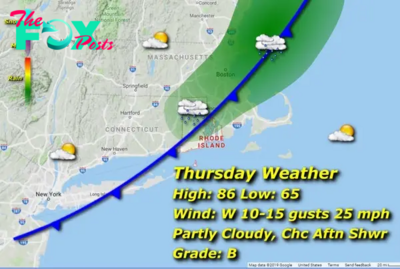
 Lifestyle12s ago
Lifestyle12s agoRhode Island Weather for June 27, 2024 – John Donnelly
-
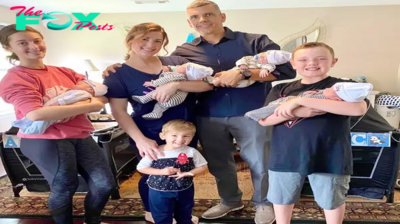
 Lifestyle2h ago
Lifestyle2h agoQT Lone Star Family Welcomes Quadruplets This Summer
-
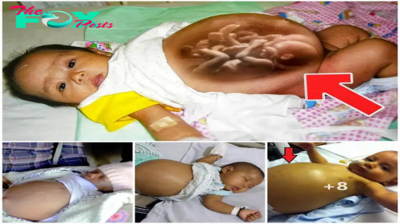
 Lifestyle2h ago
Lifestyle2h agonht.Welcoming Twin Wonders: Capturing Life’s Magical Moments.
-

 Lifestyle2h ago
Lifestyle2h ago”Captivated by the radiant smiles and angelic eyes of beautiful little girls that make viewers flutter ” LS LS
-
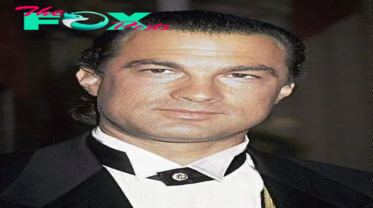
 Lifestyle4h ago
Lifestyle4h agoSteven Seagal today: Net worth, family, children, wife, height
-
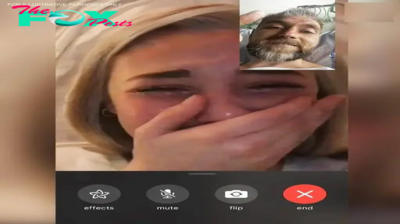
 Lifestyle4h ago
Lifestyle4h agoMy Dad Who Left 20 Years Ago Called from His Deathbed for a Final Wish — What He Asked Broke My Heart
-
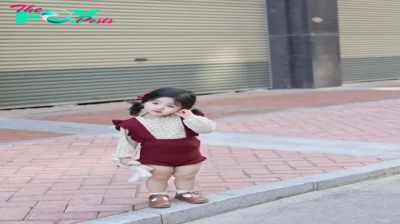
 Lifestyle4h ago
Lifestyle4h agoLet’s look at the adorable little girl on the street
-
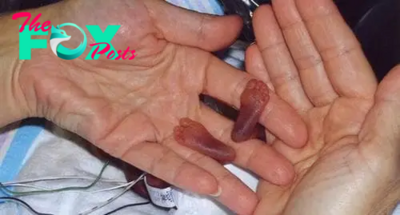
 Lifestyle4h ago
Lifestyle4h agoThe world’s smallest baby girl was born at just 25cm long and 15 years later, her remarkable story continues to captivate the hearts of all who are still watching.
















